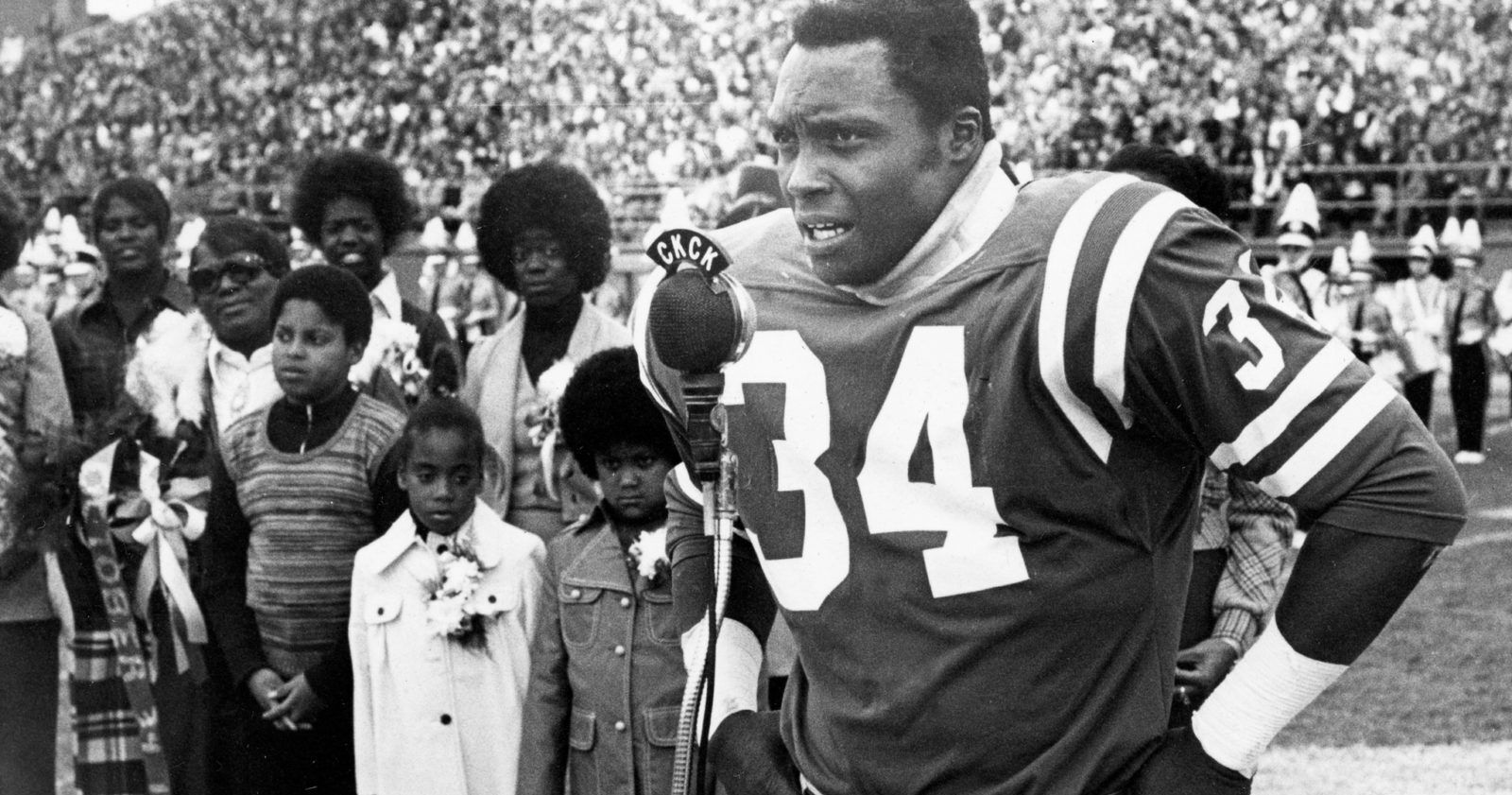
Key Points
- George Reed, CFL legend and Saskatchewan Roughriders’ icon, passed away at the age of 83.
- Reed’s career achievements include 16,116 rushing yards, 134 rushing touchdowns, and numerous all-star titles.
- Beyond the field, Reed was a dedicated community advocate, leaving a legacy that extends far beyond football.
The Canadian Football League (CFL) community is in mourning as George Reed, one of the most prolific running backs in its history and a cornerstone of the Saskatchewan Roughriders, has passed away. The team announced his death on Sunday, just one day shy of what would have been his 84th birthday.
George Reed’s enduring contributions to Canadian football were immense. He recorded an unparalleled 13-year career with the Roughriders, during which he retired as the league’s all-time leading rusher with 16,116 yards. Reed’s record of 134 career rushing touchdowns still stands.
As for individual accolades, he was a nine-time CFL all-star, a 10-time West all-star, and even earned the CFL’s most outstanding player award in 1965. His No. 34 jersey is one of only eight numbers to be retired by the Roughriders.
It is with great sadness and broken hearts that the Saskatchewan Roughriders Football Club mourn the passing of one of its greatest players of all time, George Reed.
— Saskatchewan Roughriders (@sskroughriders) October 2, 2023
💚 https://t.co/FJxvw8aq3i pic.twitter.com/7pTlQdlMPm
Born in Vicksburg, Mississippi, Reed made his journey to Canada in 1963 after an outstanding stint in college football at Washington State. Despite experiencing early instances of racism, he quickly became an integral part of the Saskatchewan community.
The Roughriders experienced their first Grey Cup victory in 1966, largely thanks to Reed’s 133 rushing yards and a touchdown during the championship game. Riders’ president Craig Reynolds honored Reed as “a giant in life,” emphasizing that his contributions went well beyond the football field.
Reed was more than just a gifted athlete; his community involvement was just as significant. Established in 1975, the George Reed Foundation became a platform for Reed to spend the next 50 years volunteering and providing for areas of education, continuous learning, healthy living, and support for individuals with disabilities.
In a statement released by the Riders, Reynolds affirmed Reed’s profound impact, stating, “His strength and tenacity on the field was matched only by his compassion and dedication off of it.”
George Reed’s place in the CFL was not only measured in rushing yards or touchdowns. As CFL commissioner Randy Ambrosie aptly put it, Reed’s influence has “endured year after year, decade after decade,” affecting generations long after his retirement from the game. His daughter Georgette further highlighted Reed’s significance, stating that accepting an offer to move to Regina six decades ago “changed our lives for the better.”
Reed’s community accolades are numerous. He was named the inaugural winner of the Tom Pate Memorial Trophy for outstanding community service in 1976. Moreover, he held the position of president of the CFL Players’ Association twice and was inducted into several sports Halls of Fame.
Beyond his accolades, Reed was instrumental in various charitable endeavors, including being one of the first-ever celebrity ambassadors for Special Olympics Canada.
With George Reed’s passing, plans are in motion to honor his legacy, which was solidified not just in his gridiron achievements but also in his off-field contributions. The Riders are encouraging anyone inspired by Reed’s legacy to make a donation to the George Reed Legacy Fund.
Reed’s death has left an indelible mark, not just in Rider Nation but across the entire CFL. He set standards both on and off the field that players and community members alike will strive to meet for generations to come.
The Canadian Football League (CFL) has released the following statement regarding the passing of George Reed.
It is remarkable that George played 13 years in the Canadian Football League, an eternity in professional football, particularly for a running back. It is notable that he played all 203 of his games for one team, the Saskatchewan Roughriders, earning the CFL’s Most Outstanding Player Award in 1965.
It’s impressive that, at the time of his retirement in 1975, he held career records for rushing yards, rushing touchdowns and touchdowns of any sort. it is incredible that he has continued to hold the CFL record for rushing touchdowns, 134 in total, all of this time, given all the talented players who have followed.
But what truly speaks to the greatness of George Reed is the hold he has continued to have on so many of us, long after he stopped playing the game he loved. It’s a hold on our hearts, which has endured year after year, decade after decade, and even generation after generation. It has had such tremendous staying power because it had far more to do with George Reed the person, than George Reed the football player.
His humility, kindness and devotion to community – the generosity with which he always responded to both people and causes – drew so many of us to him over the years, including thousands born long after he stopped scoring touchdowns. We’ll always honour his place in Canadian football history. But George Reed’s place in our hearts is what we’ll continue to cherish.
Continue the CFL Football discussions on our offical CFL Discord Channel


Big Announcement: CFL Unveils Free Live Streaming Platforms
Get Alerts & Stay Connected
CFL iPhone AppCFL Android App








